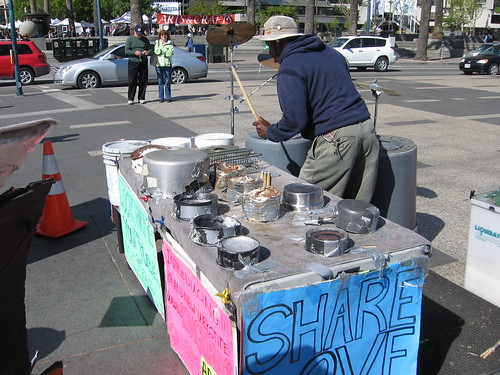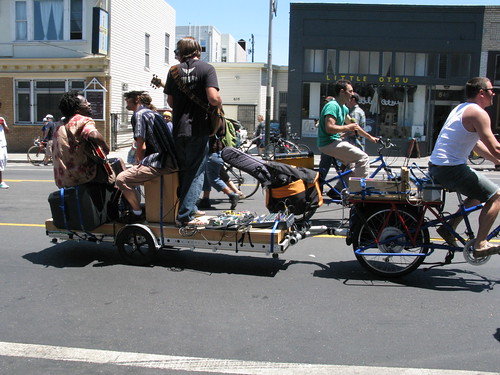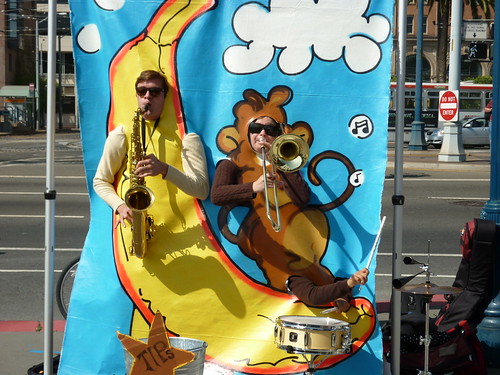 Information Is Not Knowledge…
Information Is Not Knowledge…
Knowledge Is Not Wisdom…
Wisdom Is Not Truth…
Truth Is Not Beauty…
Beauty Is Not Love…
Love Is Not Music…
Music Is THE BEST…
– Frank Zappa

While it’s important to understand the science and statistics behind climate change, the solutions are often not as linear as we’d like to believe. All the graphs and numbers are symbolic of how we humans have chosen to live and move about the planet. Sure, we must get the kinds of laws and regulations that will reduce carbon emissions. Ultimately though, we can only attain sustainable physical levels of CO2 if we can shift our perception of what it means to live a meaningful life on planet Earth.
Music is a window into the human soul. It expresses our hopes and dreams, as well as our fears and wounds. The way we relate to music reflects the way we view the world. Lately I’ve been inspired by a lot of spontaneous, stripped down transmissions of music, and it occurred to me that street musicians may hold one of the keys to a cooler climate.
Watching Rihanna perform her over the top smoke bomb spectacle on American Idol last week, I couldn’t help but wonder just how much energy it took for this empty display of mass entertainment. From moving big rigs full of gear and powering the smoke machines to thousands of fans driving to the auditorium and millions of TV sets lit up across the country, the amount of fossil fuels burned for this one performer to croak “Oh Baby I’m a Rockstar” over and over must have equaled what entire countries in the developing world consume on any given night.
Thing is, you don’t need all that fake smoke to be smokin’. Whenever I go down to the Ferry Plaza farmer’s market my world is rocked by this little outfit, called Jugtown Pirates:
[youtube=http://www.youtube.com/watch?v=L8uCXP7hg88]The spectacle is, of course, not a new phenomenon. From Circus Maximus in Rome to 19th-century Grand Opera productions in France and Germany, it has been a mainstay of western civilization. But just as with so many other aspects of modern life, the advent of cheap oil and electricity brought with it a whole new dimension of grandeur, surpassed only by the quickness and mobility with which these modern day circuses can be moved around the globe. “Music” for most 21st century denizens is synonymous with “music industry,” a commodity to be sold and consumed. Here we are now, entertain us…
![]()
Music in its very essence is simple. Throughout human history, parents have sung their children to sleep, lovers have serenaded each other, and tribes have sat around the bonfire chanting, strumming, dancing, and clapping. Long before copyright and intellectual property laws, people were playing the melodies of their ancestors, drumming to the rhythms of the sea, and humming along with songbirds. No service charges, no traffic jams in the parking lot, just a sunny afternoon in the village.


I’ve written in depth about the role cities will have to play if we’re serious about reducing worldwide carbon emissions. A plain look at the numbers reveals that cities cover less than 1% of the earth’s surface but are responsible for up to 75% of the world’s greenhouse gas emissions. It’s no secret that the key to our future on the planet is how well we manage to live in close proximity to each other and the resources we depend on.
For some this may seem like a nightmare scenario, but it’s just the opposite: Just as mushrooming farmers markets in cities across the country have built community around locally grown food and new bike lanes have shown people that life without car is not only possible but fun and interactive, having music in the street can enliven even the most unlikely parts of the urban environment. One of my favorite local street bands, Pocket full of Rye, can regularly be found in a nook behind Dolores Park, on the other side of the Muni tracks. If I’m lucky, I get to hear my favorite song, Dreams…

some musicians don’t even get off their bike to play music…

I took that photo at a Sunday Streets event during which several city blocks are closed for traffic and people come out to walk, skate and bike through the streets. It has become one of the most popular happenings in SF, because being able to roam around the street in direct contact with each other rather than being isolated in big metal boxes brings out the creative muse in everyone. Spontaneous jams, sidewalk art and dance moves on roller skates are the norm, and everyone wears a big smile on their face. And for those who like a little amplification with their street music, San Francisco is home to The Bicycle Music Festival, the largest 100% bicycle-powered music festival in the world.

 I think that the ecological crisis we find ourselves in is a symptom of a deeper crisis of spirit and consciousness. Trying to “fix” the physical manifestations — all the pollution, waste, and emissions — without taking a more soulful look in the mirror is like performing bypass surgery on a broken heart. To reduce our footprint on this beautiful planet we will first have to re-imagine how to live on it. And what better way to light up our soul than to be creative in our day to day lives, in the middle of the street?
I think that the ecological crisis we find ourselves in is a symptom of a deeper crisis of spirit and consciousness. Trying to “fix” the physical manifestations — all the pollution, waste, and emissions — without taking a more soulful look in the mirror is like performing bypass surgery on a broken heart. To reduce our footprint on this beautiful planet we will first have to re-imagine how to live on it. And what better way to light up our soul than to be creative in our day to day lives, in the middle of the street?
Of all the things we have outsourced in the complex high tech world we live in, the most significant giveaway has been that of our own imagination. From prefabricated toys to entertainment centers, from urban design to arena rock, the world is served to us on a menu of pre-made templates to choose from. While we hear incessant marketing messages about being unique and expressing ourselves, it is all tied to buying and consuming the very products that are polluting and destroying the only planet we have to live on.
Music has a magical way of stoking our imagination, and it is one of the most primal expressions of intimacy and community we are blessed with. While there’s no doubt that a well-arranged orchestra performance or high-powered rock concert can transport us into elevated states of consciousness, the direct and intimate contact inherent in more raw and unscripted musical encounters removes The Wall between performer and listener that was so powerfully conveyed in Pink Floyd’s epic masterpiece.
 Street music is an antidote to the widespread cultural amnesia that has led to a built environment in which we spend an exorbitant amount of energy and resources to keep ourselves isolated from each other in our cars, homes, and offices. It reminds us that entertainment and inspiration can happen anywhere anytime, that walking down the street can be as uplifting if not more so than a drive to the theater or stadium.
Street music is an antidote to the widespread cultural amnesia that has led to a built environment in which we spend an exorbitant amount of energy and resources to keep ourselves isolated from each other in our cars, homes, and offices. It reminds us that entertainment and inspiration can happen anywhere anytime, that walking down the street can be as uplifting if not more so than a drive to the theater or stadium.
One thing’s for sure: If we want to reduce our carbon footprint and leave behind a livable planet for our children and grandchildren, we have to re-envision how we live together and how we move around. Some say, “things are never going to change, people will never walk or bike if they can drive.” However, that’s only because we’ve come to automatically assume that the streets have always been — and will always be — filled with traffic and exhaust.
If the streets were filled with music, would you come out to play?
[youtube=http://www.youtube.com/v/3x4O-h2VFYo]![]()








Keeping things local and magical. Sounds good to me and I would come out to play if my funny-muscles could walk there.:)
As always, nice and thoughtful article.
Thanks for stopping by Pam. Just sing your favorite song this afternoon and the universe will smile… 🙂
I need the reminder that cities are 1% of the earth but cause 75% of green house gasses. I need to change by walking and riding my bike more. And like most other changes, we do it one person at a time.
We all must do more but it starts with us.
Thank you for sharing your thoughts.
Tom
Still dreaming of you teaching the 826 Valencia kids how to write music. Eye matey!
hehe, it’s still very high on the list of things to do 😉
I found this page by coincidence, and I love it!
I’ll bookmark this page for sure 🙂 Keep up your good work!
Thanks.
[…] but I’m particularly drawn to one specific post. I’m in love with his discussion of how street music is making the planet cooler – an illustration of how live music in the streets is often a low ecological impact event and […]
[…] I guess if it’s more than one, it’s called a series: How street music is making the planet cooler […]